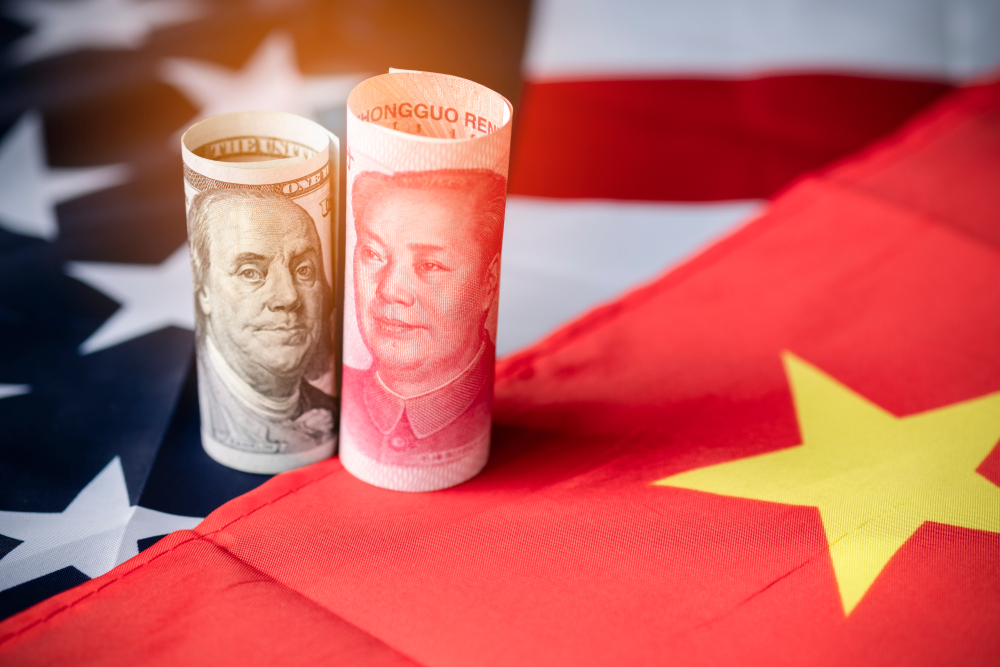In a rare move, the United States Treasury has officially labeled China as a currency manipulator, a move that could have unforeseen impacts on global markets.
The U.S. Treasury Department officially labeled China a currency manipulator on Monday after Beijing pushed down the value of its yuan in a dramatic escalation of the trade war between the world’s two biggest economies.
The formal classification– the very first since President Expense Clinton’s administration in 1994– sent markets into a tailspin after breaching key psychological resistance points. The yuan fell to 7 versus the dollar earlier in the session for the first time given that 2008.
The drop caught markets off-guard as China’s central bank typically sets the exchange rate each morning and allows the yuan to change by only 2% against the dollar during the day. The bank can buy or sell currency– or order commercial banks to do so– to dampen cost movements.
U.S. Treasury Secretary Steven Mnuchin made the determination acting “under the auspices of President Trump,” the department said. Mnuchin will now “engage with the International Monetary Fund to eliminate the unfair competitive advantage created by China’s latest actions,” it added.
Trump took to Twitter to denounce China’s move as “currency manipulation,” adding “This is a major violation which will greatly weaken China over time.”
Markets reel on currency manipulator designation
Though trade tensions had already driven stocks lower Monday before the Treasury’s designation, the new offensive hit markets especially hard.
Both the Dow Jones Industrial Average and the broader S&P 500 fell around 3 percent, extending losses from last week. However, the biggest losers were technology companies with significant exposure to China.
Shares of Alphabet, Amazon, Apple, Facebook, Microsoft, Netflix, and Twitter were all down for the day. The most significant tech stocks, Microsoft, Amazon, Apple, Facebook and Alphabet, lost a combined $162 billion in market capitalization.
Stocks also felt the pinch from the danger that President Trump would follow through on his threat to enforce new tariffs on products from China beginning September 1, 2019. Those tariffs are anticipated to take a bite out of every-day durable goods and services, which would also hit tech companies.
Few sectors were left unscathed. Major exporters such as building and construction equipment maker Caterpillar and plane maker Boeing fell 2.5%. Even Nike and Macy’s both saw their particular share prices visit around 3% each.







